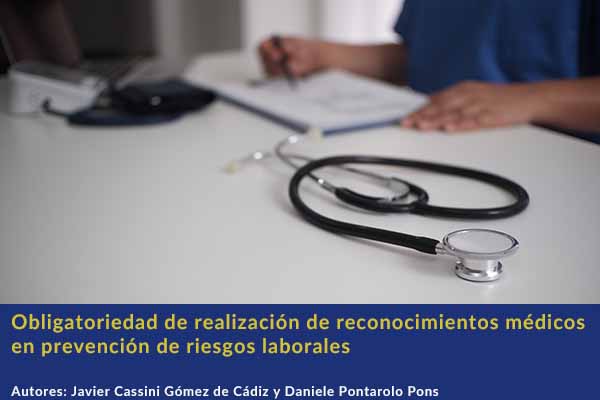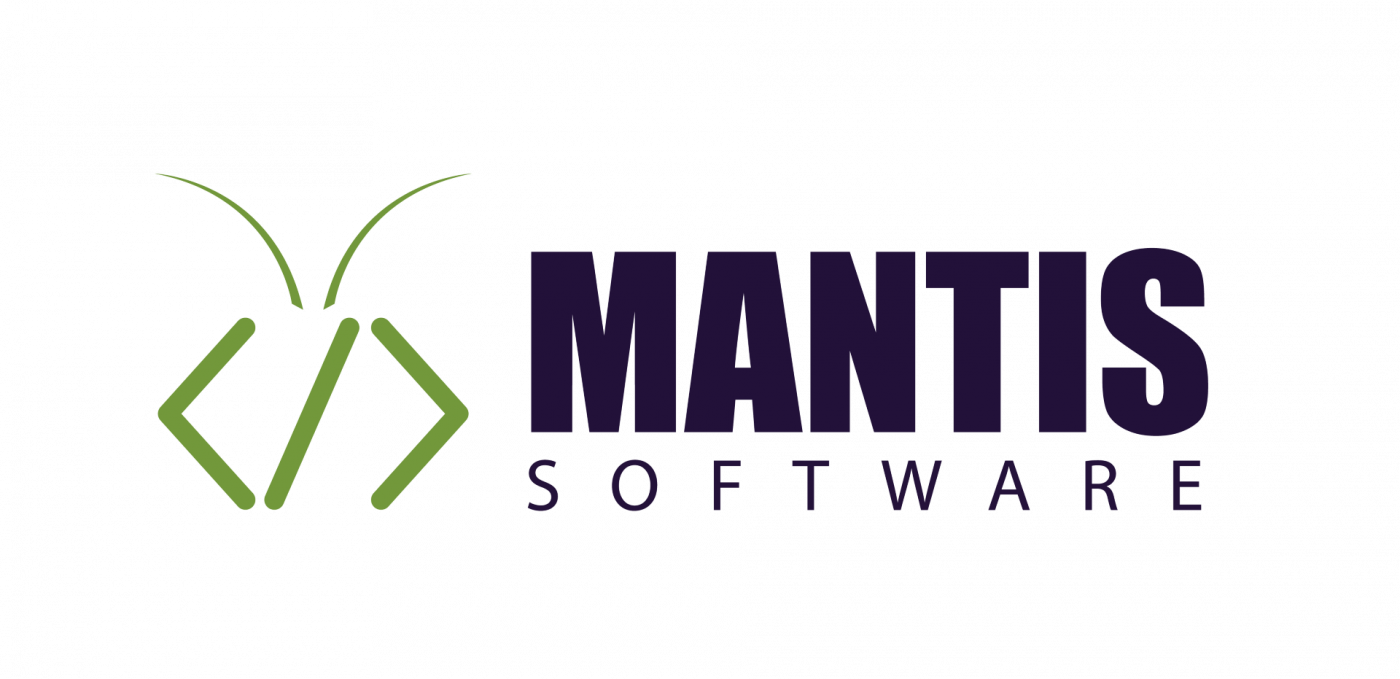Mandatory medical examinations for the prevention of occupational risks.

One of the most important aspects of occupational risk prevention is health surveillance, and within this, the performance of medical examinations specific to the job that workers perform.
One of the most important aspects of occupational risk prevention is health surveillance, and within this, the performance of medical examinations specific to the job that workers perform.
Looking back a bit, prior to the publication of Law 31/95 on the Prevention of Occupational Risks, the Mutual Insurance Companies for Workplace Accidents and Professional Diseases of the Social Security (today Mutual Insurance Companies for Collaborating Social Security) carried out medical examinations on the workers of their associated companies. These examinations did not have a specific character, as was later clearly specified in the aforementioned Law 31/95. When Law 31/95 was published, it gave way to what we could call a transition period in which the then Mutual Insurance Companies for Workplace Accidents and Professional Diseases of the Social Security continued to carry out these examinations until, tacitly, they stopped being carried out to give way as the only medical examinations linked to the management of prevention of occupational risks those carried out by the Prevention Services duly accredited for this purpose and which already had an unequivocal specific character protocolized for each job.
But since the start of the application of specific medical examinations, the question arose as to which should be mandatory and which should not. However, there is no doubt that it is mandatory for the company to make available to workers the possibility of undergoing specific medical examinations.
Recently, through our work as auditors in occupational risk prevention, we have observed a trend towards the obligation of all medical examinations and the progress in this recommendation by the External Prevention Services; therefore, it is worth pausing to analyse this situation and its current status.
First of all, it is appropriate to define when medical examinations are to be carried out, and this is defined in Art. 37.3. b) when it states:
b) In terms of health surveillance, health activity must cover, under the conditions established by article 22 of Law 31/1995 on the Prevention of Occupational Risks:
1. An initial health assessment of workers after joining the job or after being assigned specific tasks with new health risks.
2. An assessment of the health of workers returning to work after a prolonged absence for health reasons, with the aim of discovering any occupational origins and recommending appropriate action to protect the workers.
3. Health monitoring at regular intervals.
Firstly, it is worth noting the disparity of criteria applied in relation to the obligation, since there are companies that only take into account the job position to define the obligation and others also include in the criteria the time and circumstances of performance.
But the basic discussion on the obligation is focused on Art. 22 of Law 31/95 on the Prevention of Occupational Risks, which literally states, in a more or less direct relation to the obligation to carry out:
- The employer shall ensure that the health of the workers in his service is monitored periodically in accordance with the risks inherent to the work.
This monitoring may only be carried out when the worker gives his consent. The only exceptions to this voluntary nature, subject to a report from the workers' representatives, are those cases in which the carrying out of the examinations is essential to assess the effects of the working conditions on the health of the workers or to verify whether the health status of the worker may constitute a danger for him/herself, for other workers or for other persons related to the company or when this is established in a legal provision in relation to the protection of specific risks and activities of special danger.
In any case, those examinations or tests that cause the least discomfort to the worker and that are proportional to the risk should be chosen.
- Health monitoring and control measures for workers will always be carried out while respecting the worker's right to privacy and dignity and the confidentiality of all information related to his or her health status.
- The results of the monitoring referred to in the previous section will be communicated to the affected workers.
- Data relating to the monitoring of workers' health may not be used for discriminatory purposes or to the detriment of the worker.
It is somewhat confusing when it is said that undergoing a medical examination will be voluntary except in three cases:
- When the performance of the examinations is essential for assessing the effects of working conditions on health of the workers.
- When the performance of the examinations is essential to verify whether the worker's health status may constitute a danger for himself, for other workers or for other people related to the company.
- When so established in a legal provision in relation to the protection of specific risks and particularly dangerous activities.
Assuming the second assumption literally, all workers are exposed to occupational risks of greater or lesser intensity and it could be understood that medical examinations are mandatory in all cases.
On the other hand, if we look at what is stated in the General Law of Social Security, Art. 243 of the same, it indicates that employers must carry out a medical examination prior to joining of the worker (and subsequent periodic assessments) when a occupational disease in the workplace; and adds that the performance of such examinations will be mandatory. Thus The application of article 243 of the LGSS would lead us to a situation in which the voluntary nature of medical examinations would be precisely the exception, Even in administrative jobs, carpal tunnel syndrome can occur, for example.
However, the generalization to this extent of medical examinations, which entail knowledge by the company of the aptitude of the workers to carry out their work based on their state of health, would violate the right to privacy included in Law 31/95 as well as in Article 18 of the Spanish Constitution of 1978.
Furthermore, the General Social Security Law itself, in its Article 244, states that a company that has not complied with carrying out medical examinations may be liable for any benefits that may arise.
For all the above, we can understand the existence of a certain Contradiction between the General Social Security Law and Law 31/95 on the Prevention of Occupational Hazards which could be due to the timing of publication.
Obviously, in jobs where activities contemplated in Annex I of RD 39/97 Regulation of Prevention Services are carried out, there must be an obligation to carry out specific medical examinations due to the risk assumed.
Finally, it remains to look at the jurisprudence and the paths it defines in this regard. The Constitutional Court (Judgment No. 196, 2004) clarified the requirements for carrying out mandatory examinations, so that the following circumstances must coincide:
- The indispensability of testing.
- Proportionality to the risk of the tests (due to the lack of alternative options with lesser impact).
- The existence of a preponderant interest of the social group or the work community or a situation of objective need (the exceptions to voluntariness contemplated in article 22 of the LPRL)
These exceptions have been applied to each case. For example, the case of a security guard who must carry a weapon and has shown signs of having hearing problems (Judgment No. 979, 2011). But, more recently, new judgments have emerged that assume that voluntariness can be applied to certain jobs, as has occurred with firefighting brigades (Judgment No. 3046, 2015); jobs in which forklifts/pallet trucks are handled, jobs exposed to thermal stress due to cold, work in confined spaces (Judgment No. 287, 2016); work at height (Judgment No. 583, 2016), security guards and escorts (Judgment No. 259, 2018) or drivers of self-propelled sweepers (Judgment No. 1915, 2016).
That is to say, the voluntary nature of undergoing medical examinations is becoming increasingly limited, so that obligation may cease to be the exception and move towards becoming the norm, in conflict with Art. 22 of Law 31/95 or Art. 18 of the Spanish Constitution of 1978, since in most or all jobs there could be a danger to third parties or to the worker themselves depending on the health status of the workers.
In conclusion, regarding the course of action to be followed, at this time of some confusion and disparity of criteria regarding the obligation to carry out specific medical examinations, it is advisable to operate as follows:
- Request from the Prevention Service - Own or External - the mandatory and periodic criteria for each job position in the company.
- With this information, define within the Health and Safety Committee, or with the participation of the Prevention Delegates if the previous body does not exist, the company's criteria regarding the obligation and frequency of carrying out medical examinations.
With this working methodology, we will have a technical basis in health matters and an agreement with the workers' representatives that will avoid conflicts in this matter and will contribute to this preventive activity being carried out in an environment of social peace.
In general, the voluntary nature of specific medical examinations requires a balance to be achieved between the right to privacy of workers and the employer's duty to ensure their safety and health.
Source: https://prevencionar.com/2024/10/02/obligatoriedad-de-realizacion-de-reconocimientos-medicos-en-prevencion-de-riesgos-laborales/


